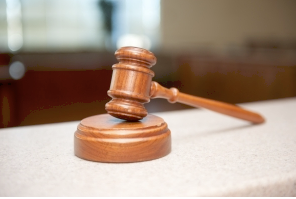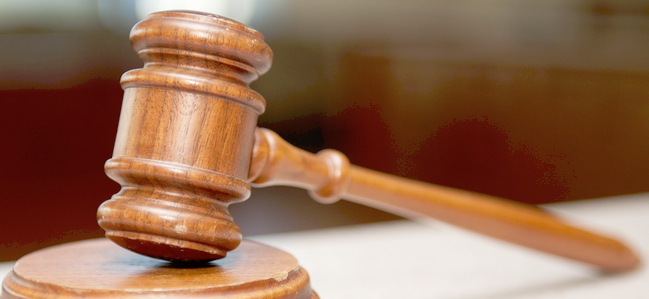Update on the Potential Copyright Small Claims Court
 Back in 2006, the House of Representatives’ IP subcommittee began setting in motion the long process for attempting to create some form of copyright small claims court.
Back in 2006, the House of Representatives’ IP subcommittee began setting in motion the long process for attempting to create some form of copyright small claims court.
In 2011, the U.S. Copyright Office, at the direction of Congress, began to study “the challenges of the current system for resolving small copyright claim disputes, as well as possible alternative systems.
To date, the USCO has held one round of public hearings, two rounds of public inquiry and has announced a third round that is beginning right now (PDF).
The process is, obviously, far from done. The USCO is only able to study the issue and make recommendations. Any actual changes to the law would have to be performed by Congress. However, the USCO has a great deal of sway over the policies Congress does adopt and the public conversations and discussions that lead up to the completition of such a study can have a great deal of sway on what the USCO recommends.
On that note, it’s worth taking a few moments to look at what has been said so far, where the conversation is heading and, perhaps most importantly, what you can do to help steer it.
The Importance of Copyright Small Claims
 The unfortunate truth is that, in the U.S., most copyright infringements are not eligible for a lawsuit.
The unfortunate truth is that, in the U.S., most copyright infringements are not eligible for a lawsuit.
First, the vast majority of all created works are not registered with the USCO, a prerequisite for filing a suit. However, even if such a registration is filed, the damages that one could realistically hope to claim are not worth the cost of hiring an attorney, filing a suit in Federal court and collecting on any damages or settlement.
Even “quick and simple” cases of infringement can cost tens of thousands of dollars to go after, creating a system where only the wealthiest copyright holders can afford to use the courts to protect their rights.
On the other side of the coin, defending a copyright infringement case is no small task either and can cost nearly as much even if one is found to be not liable. If one is found liable, with damages that can be incredibly high due to the statutory damages provided under the law, an infringement suit can easily bankrupt an individual over what is seen as a relatively minor infringement. This forces many would-be copyright defendants to settle rather than fight so they can avoid the time and expense of the case.
In short, the system creates an imbalance were some rightsholders can sue regularly and often bankrupt people over relatively minor infringements and other creators are unable to sue at all, even when the infringement may be very severe.
The Solutions Proposed So Far
The obvious problem is that all copyright lawsuits have to go through the Federal Court, which is expensive, time-consuming and not well-designed for smaller claims. The system is just not viable to sue someone for a few hundred or even a few thousand dollars.
So, in the second round of inquiries, the USCO proposed a series of solutions that had been discussed, they include:
- Using State Courts: Letting state courts, in particular state small claims courts, hear small copyright cases. While these courts have little expertise in the area of copyright law, they do have a well-understood framework for dealing with small claims cases.
- Using the Copyright Royalty Board: Using the Copyright Royalty Board (CRB), which is a panel of administrative law judges that oversees the rates for statutory licenses. While these judges obviously have the expertise, it’s unclear how they would handle the likely case load of a large number of small claims cases.
- Class Action-Style Litigation: This option would allow one trade organization to bring a single claim on behalf of a large number of copyright holders. Unfortunately, this doesn’t provide much help for one-off infringements or do much to mitigate the costs on the defendant side.
- Employing More Administrative Law Judges: The USCO mentions employing a large number of dedicated administrative law judges to specialize in these claims. While an appealing solution for many reasons, the cost of such a system would likely be high.
- Creating a True Copyright “Small Claims” Court: Finally, the USCO proposes the possibility of creating a completely separate circuit of courts for small copyright claims or otherwise “streamlining” Federal procedures. This is the approach that many desire but, as with the hiring of administrative law judges, the cost will likely be high and significant questions about jurisdiction are raised.
In short, none of these solutions are perfect and they all have drawbacks and challenges that could prevent them from working. However, the variety of potential solutions, shows that the USCO is open to exploring all options and all solutions to those challenges.
The Questions Being Asked
But even as the proposed solutions are being debated, the USCO is looking at some of the challenges and questions that would likely impact any approach to this challenge. Some of the key ones being discussed are:
- Defining a Small Copyright Claim: What constitutes a small copyright claim? Should it be a damage amount? If so, what is that amount and how should it be determined?
- Voluntary vs. Mandatory: Should such a small claims system require both parties to agree to participate (such as with mediation) or should one person simply be able to sue the other?
- Eligible Works: What works would be eligible for this court? There have been some suggestions that certain types of works, namely musical ones, be excluded as some organizations feel there is already an adequate system in place.
- Appearance of Parties: When and if would parties be required to appear before the court? Namely, would the entire process be virtual or would it require an in-person trial? Also, when would the defendant be required to appear, possibly at a court far away from them?
- Constitutional Issues: How should any copyright small claims system work within the separation of powers and the rights of the defendant in the case?
Obviously, there are many, many more issues being discussed, but these are some of the key ones that have come up repeatedly over the past few rounds of dialog.
What is Being Said
Though it’s difficult to summarize all of the responses to date (80 total), there are a few things that seem to be said among the bulk of responses:
- Agreement on the Need for a System: It seems that there is broad support for some form of copyright small claims process. It’s an issue that, it appears, people on all sides of the copyright debate agree upon.
- Disagreement on the Approach: It seems all of the above approaches have their fans and there’s also disagreement as to whether or not the system should be voluntary or mandatory and how to address the constitutional issues such a system might raise.
In short, this seems to be something that everyone feels needs to happen but the details of how to bring it into existence are being debated a great deal.
Now Is Your Turn
Yesterday, the USCO announced that it was seeking a third round of comments. Specifically, they’ve expressed interest in getting more input about voluntary versus mandatory participation, eligible works, permissible claims, injunctive relief and other issues. However, the USCO has said that it will consider all comments on the topic that are relevant to the topic.
Participation in the first round was relatively brisk, with 55 comments filed, but the second only saw 25 participants, despite an extension. Now is a great time for others to step up and have their voices heard on this matter. With the conversation far enough along to have honed in on the key disagreements, it’s a great opportunity for small copyright holders, the ones most likely to use such a system, to have their voice heard.
So, if you have an interest in participating in this conversation, draft a comment and save it to a Word, text or RTF file and submit it via this form.
The USCO is listening and this is your chance to help shape a potential revolution in U.S. copyright policy at a very early stage.
Bottom Line
Many criticize the USCO for not taking public comments seriously or disregarding them. However, past responses have shown that they do read and respond to public comments, even if they disagree with them.
In short, this is your chance to have your thoughts and ideas heard without the need to go to a legislator or launch a protest, a chance to be heard early enough in the process to shape how things form down the road.
In short, this a chance to shape legislation rather than merely approving or disapproving it and its an opportunity that is probably well worth taking.
Want to Reuse or Republish this Content?
If you want to feature this article in your site, classroom or elsewhere, just let us know! We usually grant permission within 24 hours.
